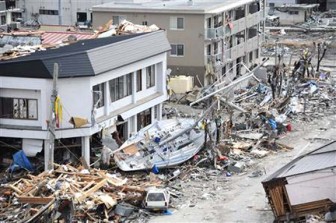LONDON, (Reuters) – Global efforts to assist Japan after Friday’s deadly quake should focus on longer-term concerns such as trauma counselling and helping people to rebuild, a senior international aid official said yesterday.
One of the world’s richest nations and used to dealing with earthquakes, Japan was as well prepared as any nation could be to respond to such a crisis and has used the huge amount of help offered to bring in overseas experts.
So far search and rescue teams and medical units have been spearheading international aid efforts for Japan but hopes of finding more survivors are dwindling.
Patrick Fuller, of the Red Cross international humanitarian group, said overseas aid should now look to provide lasting benefits.

“People have lost so much, they have lost their homes, they have lost their relatives, so one of the focuses for us is going to be being able to give trauma counselling,” he told the BBC from northern Japan.
“Stress is a major factor for the people in this kind of situation but also help with their longer-term recovery. They are going to need funding to help get back on their feet, to rebuild their homes.”
Fuller said the situation around the coastal town of Otsuchi was desperate, with people scavenging for food and rescue teams trying to put out forest fires.
“I was up at one of the evacuation centres today where there were probably about 300 people just lying on the floor on sheets of cardboard, blankets, a lot of them elderly people,” he said, adding that there were crowds milling around looking for lost relatives.





